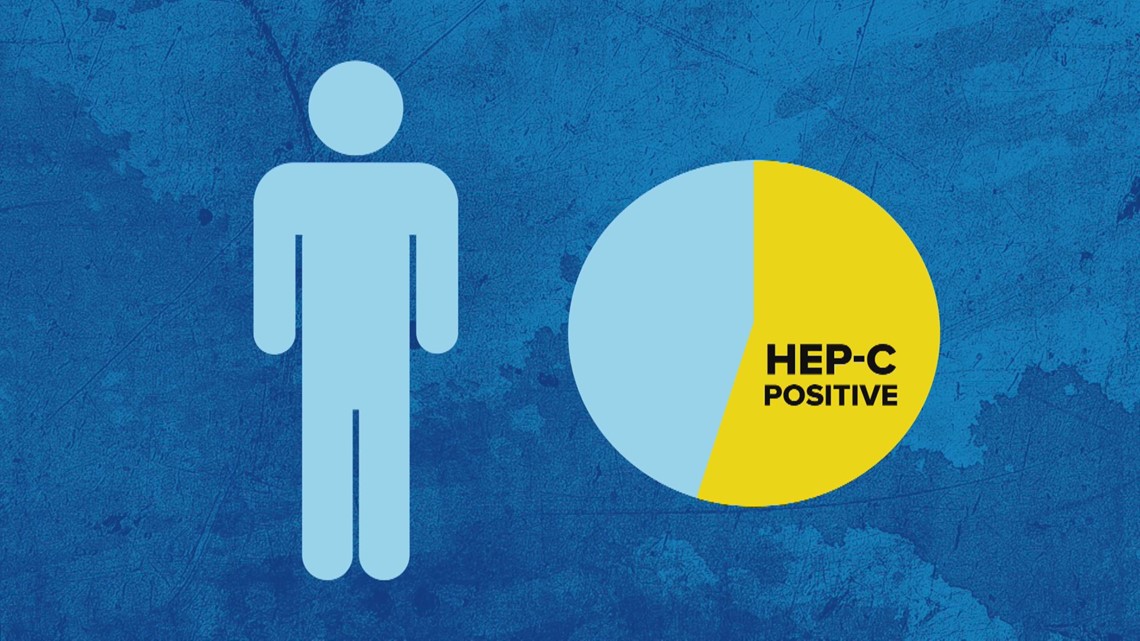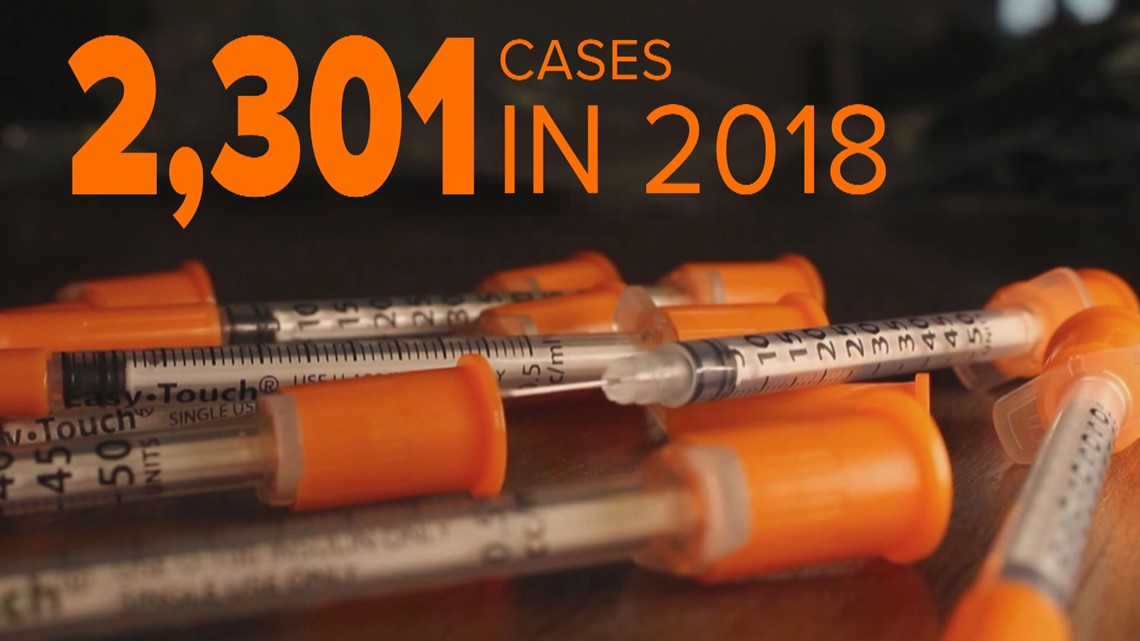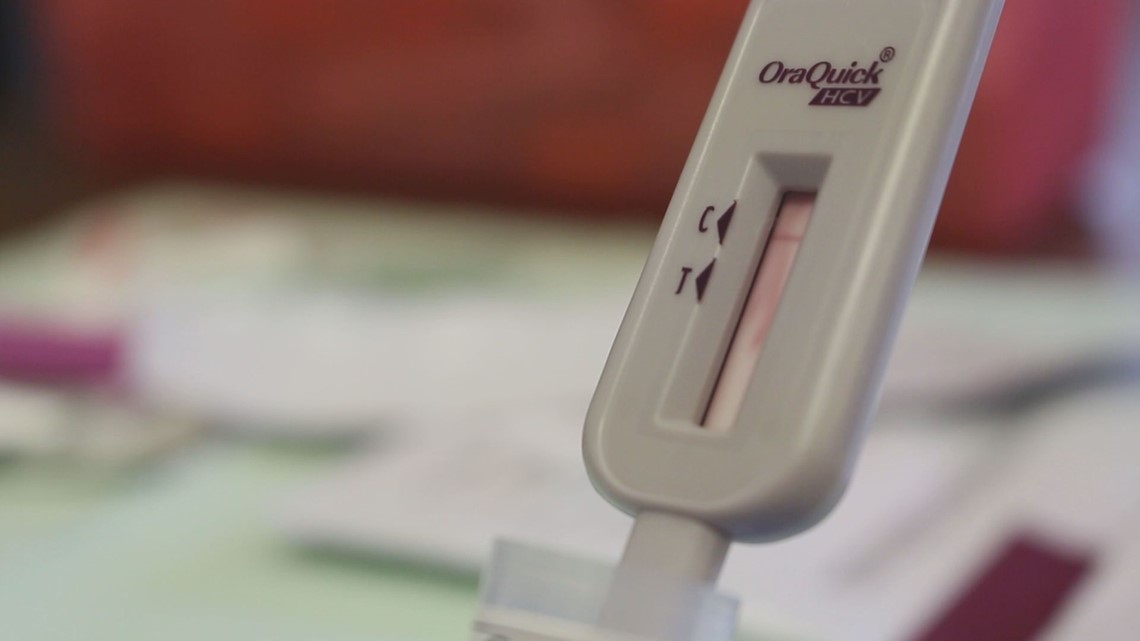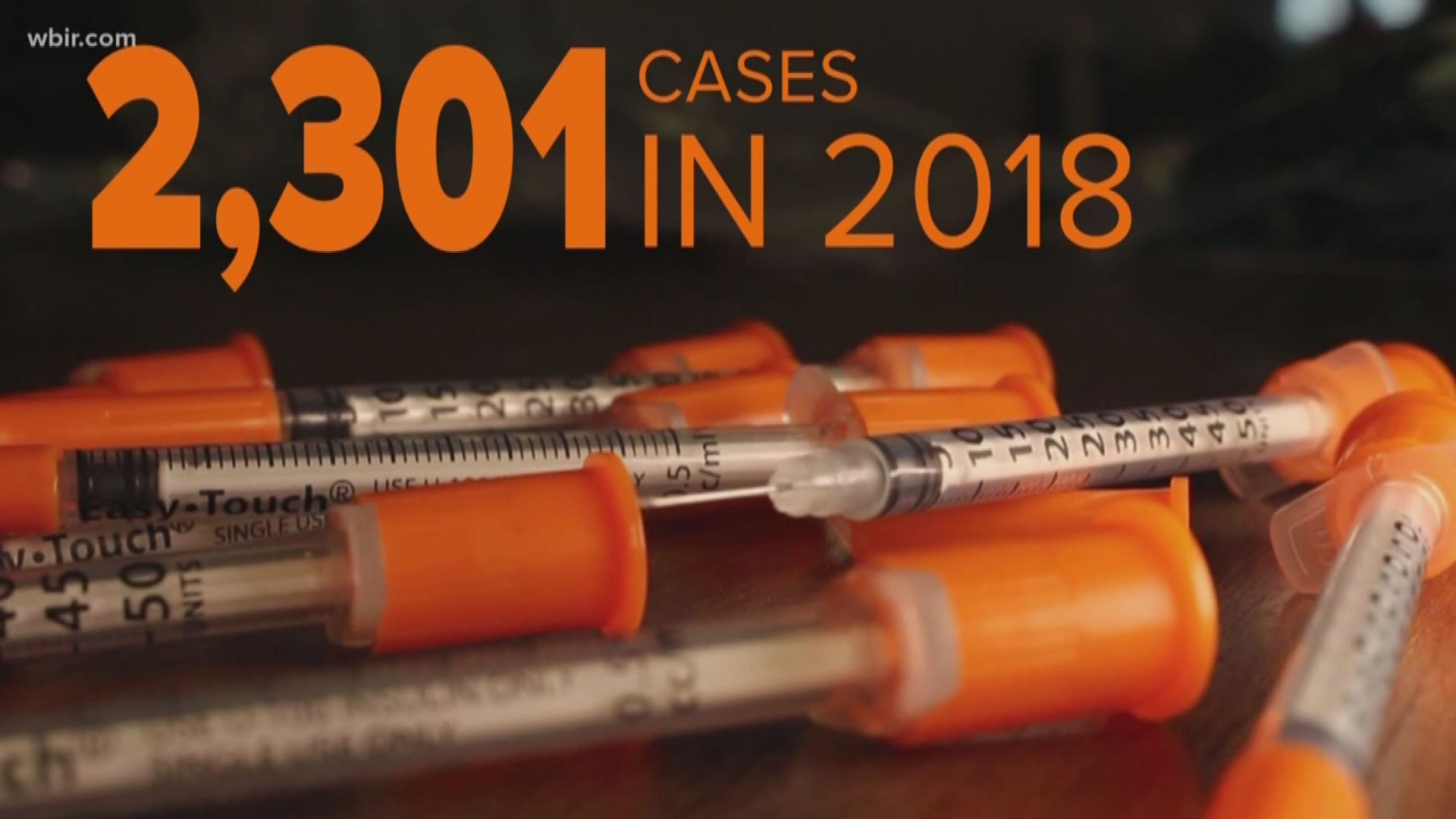KNOXVILLE, Tenn. — You see the needles and you see the drugs, but an invisible side effect of the drug epidemic demands your attention.
New data shows an alarming number of Hepatitis C cases in East Tennessee among drug users. 65% of people tested by Choice Health Network tested positive for Hep C. That's compared to just 1% who test positive for HIV.
Choice Health Network runs the syringe exchange program in Knoxville where drug users can trade dirty, used syringes for new, clean ones. They also use the opportunity to test people for diseases like HIV and Hep C.
"It might be invisible to people now but I think it’s becoming a lot more clear as time goes on, it’s going to be impossible to ignore," said Genoa Clark with Choice Health Network. "Here in East Tennessee, Hepatitis C is on the rise and we really don’t even know what it’s like, especially in some of these rural areas where we might not have readily available testing available."
Of the 166 people they have tested for Hepatitis C, a staggering 65% tested positive for the virus. Only 1% tested positive for HIV. About 300 people have been tested in total.


Hepatitis C became a reportable disease in Tennessee in 2017. That means the Knox County Health Department only has two years of data for how many people have it. 2,301 cases were reported in 2018, with all signs pointing to the drug epidemic as the main source.


"One of the challenges with Hepatitis C is that it’s not been reportable very long," said Dr. Martha Buchanan, Director of the Knox County Health Department. "What we have seen so far is a very strong connection to IV drug use in folks with Hepatitis C."
Hep C is spread from contact with blood. Drug users who shoot up with dirty syringes easily transfer the virus amongst one another.
"Both HIV and Hepatitis C can be caught by sharing needles, which is why it’s so important that people who are going to use drugs aren’t sharing needles," said Dr. Buchanan. "They’ve used it, gotten some blood on it, somebody else uses it, sticks it in their vein, and just sticks that virus right in there. It’s really easy for somebody to catch it that way. "


The virus can survive outside the body for weeks, and it can spread beyond just those who use drugs.
"Razors, nail clippers, anything that might have a tiny bit of blood, even if you can't see it, it can be spread from person to person," said Clark. "People live for many years sometimes and they don’t know until their liver is pretty severely damaged."
Knox County is betting on a syringe exchange program as a solution for the problem.
Choice Health Network sets up their nondescript van on street corners around Knoxville two times a week in an effort to discourage people from sharing syringes. They hand out clean syringes and other items that encourage people who are going to do drugs to do them safely.
"We are regularly seeing about 150 people a day when we go out," said Clark. "The need is huge in our community for the syringe exchange. It’s much bigger than anyone could have predicted."
As they hand out syringes, it is also an opportunity to test people for diseases. In less than 20 minutes, the test shows whether a person tests positive, allowing people to seek help. One small step that could have a big impact in an ever-growing war against drugs.
"We’re trying to make sure more people can get screened and have the knowledge that they might need to take care of it," said Clark. "Hep C is treatable, it’s curable, which is incredible. We don’t get to say that about many things."
If you or a loved one is struggling with drug addiction, there are options to get help. You can find a list of resources here.

